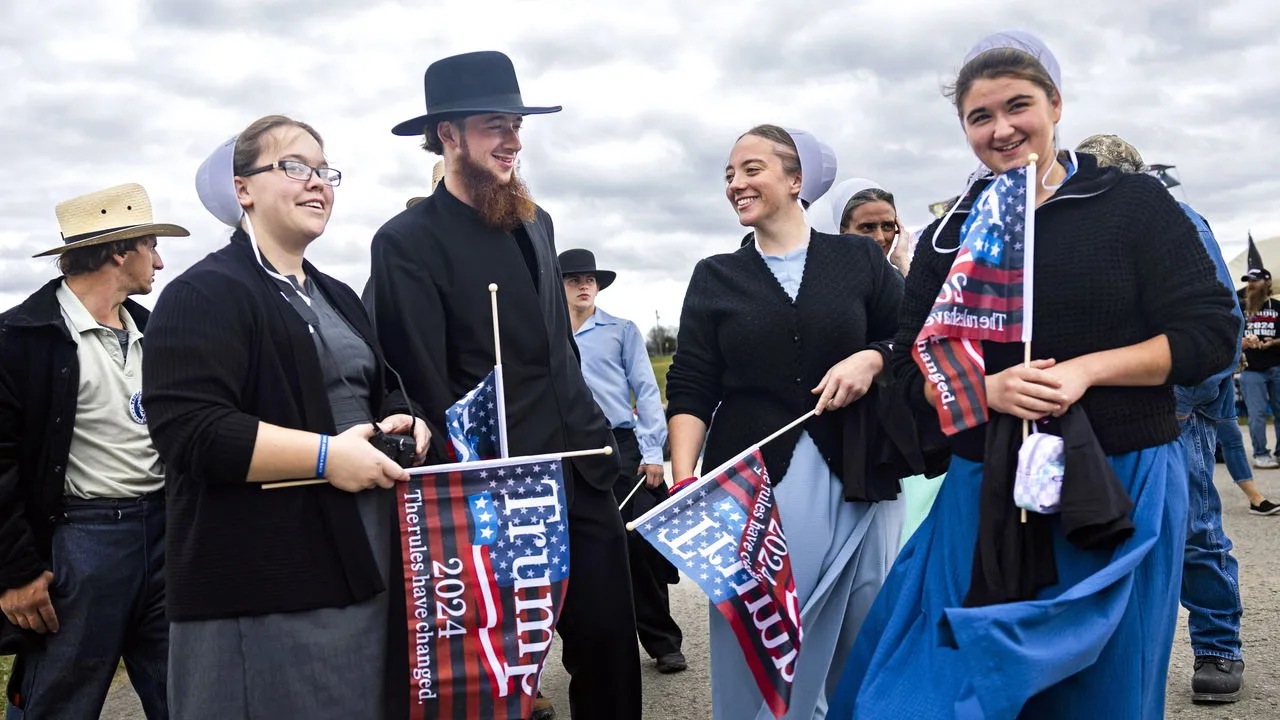By JENNA LAPP
LANCASTER, Pa. (URCNS) – Every vote counts in the upcoming presidential election, whether you drive to the ballot box or ride your horse and buggy.
The Amish, an ethnoreligious group well known for its plain lifestyle, would likely be the ones reserving the buggy parking spots. But do Amish people even vote, considering almost every part of their livelihood is maintained separate from modern government and society?
It is a tough answer to find, because Amish people often turn down interviews with journalists due to concerns they have about the way they are portrayed in the media. Most are not entirely comfortable with attention, like Elmer Stoltzfus of Ronks.
“I don’t like the way the media puts us into a box,” Stoltzfus said. “I would rather be considered a regular Christian voter.” He doesn’t want people to think that all the Amish are doing the same thing, he said.
Barbie Stoltzfus of Lancaster, who is not related to Elmer Stoltzfus, shared this sentiment, and explained a common misconception she has observed.
“A lot of people think that if one Amish thinks one way,” B. Stoltzfus said, “it’s because the bishop said it, and that we all need to think that way. But there’s 37,000 Amish in Lancaster, and where do 37,000 people all think alike?”
Lancaster County had 16,925 eligible Amish voters in 2020, according to a study conducted by Kyle Kopko, a professor of political science at Elizabethtown College. Of those voters, 2,940 voted on election day, which is about 17%. In 2016, about 7% of eligible Amish voters cast their ballot.
The largest Amish settlement in the country lives in Lancaster, Pennsylvania, but there are also sizable pockets in two other swing states: Wisconsin and Michigan. However, both states have less than a third of the amount of eligible Amish voters than Lancaster County alone.
“If that question is about all the Amish nationally in the United States,” said Steven Nolt, director of the Young Center for Anabaptist and Pietist studies at Elizabethtown College, “the answer is very, very rarely, or almost no. If you’re asking about specific communities, the answer is yes, but even there, it’s a minority.”
The Amish believe in a two-kingdom theology, which sharply differentiates the church and the world. So, they do not have a theology for being responsible for society. In many cases where they do vote, it is because they have been there for a long time and have integrated in the local community, Nolt said. Historically, local issues have brought them to the ballot.
Most likely, their influence in the upcoming election would benefit republicans. The Washington Post reported that Stoltzfus is the most Republican surname in the entire United States, suggesting that the Amish are the most reliable republican bloc in the country.
Lancaster has historically been overwhelmingly republican, and Kopko and Nolt’s research shows that Amish will typically vote for the republican candidate regardless of who it is.
B. Stoltzfus’ son, Steven Stoltzfus of Lancaster, has been voting since 2016 and said he will be voting again in November in accordance with his conservative ideals. He estimated that about half of his friends would be voting as well, likely all men.
“I am sure there are some families that push their girls to go vote,” S. Stoltzfus said, “but most times it is just boys.”
B. Stoltzfus said she thinks that most Amish families do not believe they should get involved in politics because they believe that since they choose to remain separate from the cares of the world as conscientious objectors, they should also separate themselves from politics.
Her husband disagrees with that, she said, and has a different view than most Amish. He believes that as born-again Christians, they have a responsibility to vote to keep ungodly leaders out of office.
“Imagine what chaos the world would be if there wouldn’t be an authority,” B. Stoltzfus said. “[Her husband] believes, because we need an authority over the U.S., it is his duty to vote.”
B. Stoltzfus will also be voting Republican in November. Her husband ensures that all members of their household who are over 18 vote, but does not force his views on them, she said.
There has recently been a slight push among a few Amish to encourage their people to vote, but that many still don’t see any benefit in voting. Among those who do vote, B. Stoltzfus said the issue they care about most is abortion.
E. Stoltzfus will vote Republican this November, but said it is unfortunate that the numbers of voters in the plain Christian communities are stunningly low.
“A lot of people love to complain but don’t love to go out and vote,” E. Stoltzfus said.



